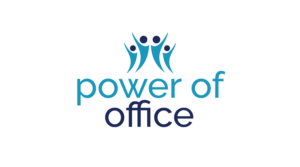Introduction
Embarking on your journey in the Indian stock market begins with the demat and trading account opening process. These accounts are essential for buying, selling, and holding securities in a digital format. With various brokerage firms offering different services, understanding how to effectively open and manage these accounts can set you up for long-term success. This blog provides proven tips on opening your demat and trading accounts, incorporating the latest trends and news from the Indian stock market.
Choosing the Right Brokerage Firm
Selecting the right brokerage firm is a crucial step in your trading journey. Factors to consider include:
- Reputation and Trustworthiness: Research the firm’s background, regulatory compliance, and customer reviews. Look for SEBI-registered brokers to ensure reliability.
- Fee Structure: Compare brokerage fees, including commissions on trades and any hidden charges. Some brokers now offer zero brokerage plans, making them attractive for beginners.
- Customer Support: Choose a brokerage with excellent customer service, as having access to timely support can be vital, especially for new traders.
In recent news, several brokerage firms in India have adopted technology-driven solutions, enhancing customer experience and operational efficiency, which can be beneficial for traders.
Understanding Types of Accounts
Before you open a demat and trading account, it’s important to know the different types of accounts available:
- Demat Account: This account holds your shares and securities in electronic form, eliminating the need for physical certificates.
- Trading Account: This account allows you to buy and sell shares in the stock market.
- Commodity Trading Account: If you’re interested in trading commodities, you’ll need a specific account for that, which may also be opened online.
Understanding these account types helps you make informed decisions based on your trading interests and goals.
Required Documentation and Eligibility Criteria
To open a demat and trading account, you will need to submit specific documents, including:
- Identity Proof: PAN card, Aadhaar card, or passport.
- Address Proof: Utility bill, bank statement, or rental agreement.
- Income Proof: Salary slips or bank statements, especially if trading in derivatives.
- Passport-sized Photographs: Generally required for the account opening form.
Eligibility criteria usually require you to be at least 18 years old and possess a valid PAN card.
Step-by-Step Guide to Opening an Account
Opening a demat and trading account typically involves the following steps:
- Select a Broker: Based on your research, choose a brokerage firm that fits your needs.
- Fill Out the Application Form: This can often be done online through the broker’s website or mobile app.
- Submit Required Documents: Upload or provide physical copies of the required documentation.
- Verification Process: The brokerage will verify your documents, a process that may take a few hours to a couple of days.
- Account Activation: Once verified, you will receive your account details via email or SMS.
Many brokers, such as Enrich Money, offer a seamless account opening experience through their digital platforms, making the process quick and efficient.
Understanding Fees and Charges
It’s vital to understand the fees associated with your accounts, including:
- Brokerage Fees: These may be charged per trade or a percentage of the transaction amount.
- Annual Maintenance Charges (AMC): Some brokers waive these fees, so look for an AMC-free demat account.
- Other Charges: Be aware of charges for fund transfers, service fees, or additional services.
Carefully reviewing these fees will help you select the most cost-effective broker.
Account Features and Tools for Success
A robust trading platform should offer features that enhance your trading experience. Enrich Money, for instance, provides:
- Real-Time Market Data: Helps you make informed trading decisions.
- Advanced Analytical Tools: Aids in technical analysis and strategic planning.
- Educational Resources: Access to tutorials, webinars, and market insights, crucial for beginners.
Leveraging these tools can significantly enhance your trading success.
Best Practices for Managing Your Account
To manage your trading accounts effectively:
- Monitor Your Portfolio: Regularly review your holdings and performance.
- Stay Informed: Follow market trends and news. Recent developments in Indian markets highlight a shift towards digital trading, with increased participation from retail investors.
- Implement Risk Management Strategies: Always set stop-loss orders and diversify your portfolio to mitigate risks.
Conclusion
With the right knowledge and approach, commodity trading account opening online can be a straightforward process. By following these tips for selecting the right brokerage firm, understanding the types of accounts available, and adhering to best practices for account management, you can lay a strong foundation for your trading journey. Embracing digital tools and platforms like Enrich Money will enhance your chances of success in the ever-evolving Indian stock market landscape.

